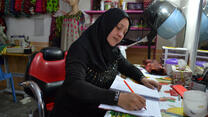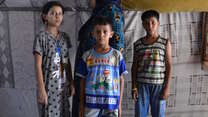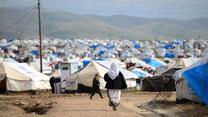The International Rescue Committee (IRC), under the ECHO-funded Protection Consortium of Iraq (PCI), has released a new Rapid Needs Assessment analyzing protection needs and access to essential services in IDP-hosting and displacement-affected districts across Iraq. The assessment was designed and led by the Protection & Rule of Law (PRoL) Program at IRC Iraq.
Data was collected from June to September 2025 in nine priority districts where displacement-affected families continue to face barriers to safety, documentation, and durable solutions:
- Anbar Governorate: Ramadi, Heet, Al-Qaim
- Ninawa Governorate: Mosul, Sinjar, Qairawan
- Salah al-Din Governorate: Baiji, Tikrit, Tooz
Using 45 Key Informant Interviews and 27 Focus Group Discussions with 246 participants — including IDPs, returnees, female-headed households, minority groups, and persons with disabilities — the assessment provides an updated picture of evolving needs and persistent barriers to rights and services.
Key Findings
- Civil documentation is the most urgent and unmet need.
Up to 30% of households lack the Unified National ID, ration card, birth and marriage certificates, or proof of residence — preventing access to healthcare, education, social protection systems, property compensation, and even movement through checkpoints. - Services in IDP-hosting areas are overstretched and inconsistent.
Water and electricity supply is unreliable; healthcare and education require documentation, fees, or long-distance travel. - Household economy remains fragile and unsustainable.
Families rely on daily wage labor, irregular income, and negative coping mechanisms such as borrowing, selling assets, reducing meals, and child labor. - Protection risks are persistent and interconnected.
Child labor, early/forced marriage, discrimination linked to perceived affiliations, movement restrictions, and HLP disputes are commonly reported. - Mental health needs are rising faster than services can respond.
More than half of assessed locations have no mental health or psychosocial support services, despite widespread psychological distress.
Recommendations
The report calls for:
- Mobile civil documentation and legal aid services targeting undocumented families.
- Integrated protection case management with MHPSS support for high-risk groups.
- Livelihoods interventions linked to national social protection programs.
- Inclusion in state led social security services for vulnerable clients.
The findings demonstrate that although security and return movements have improved in several districts, structural and administrative barriers continue to prevent displaced and vulnerable families from accessing their rights and rebuilding their lives.



